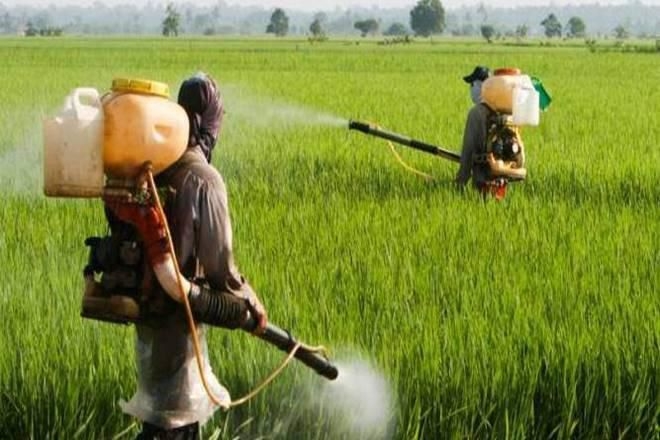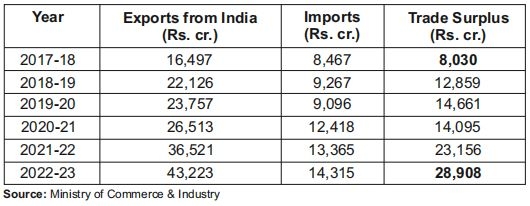India becomes 2nd largest exporter of agrochemicals under Modi govt
Total Views | 140
India has surpassed China to become the world's second-largest exporter of agrochemicals. Ten years ago, the position was sixth, according to the most recent WTO data. According to industry analysts, this is a significant step forward in the direction of Make in India and AatmaNirbhar Bharat.

The spectacular export record is mostly attributable to Indian industry's unique technological competence to swiftly offer post-patent items at competitive pricing in the local and global markets. Our scientists and engineers are among the world's best. Here's an illustration: With an estimated yearly sales of Rs. 13,000 crores, chlorantraniliprole (CTPR) is the world's most popular pesticide. This pesticide was imported into India till last year.

Many Indian businesses have recently entered the market with CTPR made in India. This is likely to reduce its imports into India while also making India a CTPR exporter.
Every year, the Indian agrochemical business generates a significant trade surplus. The trade surplus expanded dramatically from Rs. 8,030 crores in 2017-18 to Rs. 28,908 crores in the current fiscal.

The global agrochemicals industry is projected to be worth $78 billion, with post-patent goods accounting for over 75% of this total. India is quickly becoming a favoured worldwide location for purchasing post-patent agrochemicals.
CCFI has proposed to the Government of India specific actions to prevent the import of ready-to-use pesticide formulations in order to encourage domestic production and reduce imports.
Referring to India's ongoing discussions on Free Trade Agreements (FTAs) with the EU, UK, and others, Mr. Deepak Shah warned against granting any TRIPs plus measures to western MNCs, such as data exclusivity, as this would harm the growth of India's export-oriented agrochemical and pharmaceutical industries.
Bharati Web
Mes, Pune






